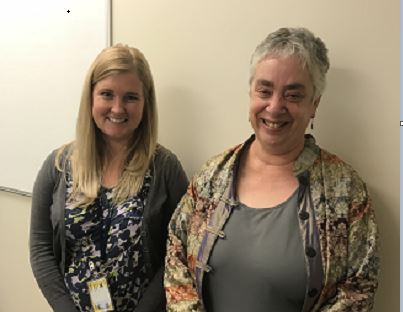Long-Term Care Project
Care Conversations with Veterans in VA Long Term Care Settings
 |
Team Members: Anne Sales, PhD, RN (PI) Mary Ersek, PhD, RN (Co-PI) Cari Levy, MD, PhD (Co-PI) Jennifer Henry, MSW Funding: 10/1/2016 – 9/30/2021 Partners: VA Office of Geriatrics and Extended Care Policy and Planning; VA National Center for Ethics in Health Care; VA Office of Nursing Services |
Background: The National Center for Ethics in Health Care released Handbook 1004.3, “Life Sustaining Treatment Decisions: Eliciting, Documenting, and Honoring Patients’ Values, Goals and Preferences” in January 2017. Through this handbook, practitioners throughout all care delivery settings in VHA will be required to hold Goals of Care (GoC) conversations with seriously ill Veterans and their families, to document these findings in CPRS in the life-sustaining treatment template, and to develop care plans consistent with the goals expressed by the Veterans and their families. VHA facilities are expected to have this initiative fully implemented by 2018. The overall goal of our QUERI project is to support the Veteran-centered implementation of Goals of Care Conversations specifically in Community Living Centers (CLCs) and in Home Based Primary Care (HBPC). Veterans in these settings are often vulnerable, frail, and face critical decisions about their care.
Objectives: To achieve our overall goal, we are focusing on the following activities. Assessing variation in practice measures related to implementation Goals of Care (GoC) conversations in community living centers (CLCs) and home based primary care (HBPC) programs over time nationally. Designing, implementing, and testing tools to improve performance. These include tools for feedback reports to provide information on progress in key measures, and tools for learning collaboratives to support action-planning to address performance gaps. Using measures derived from two widely-used implementation research frameworks (the Consolidated Framework for Implementation Research and the Theoretical Domains Framework) to assess barriers and facilitators to implementing GoC conversations. Using audit and feedback interventions coupled with action planning through learning collaboratives. And finally, conducting rapid tests of different designs within these strategies to overcome barriers to implementing GoC conversations in CLCs and HBPC.



















